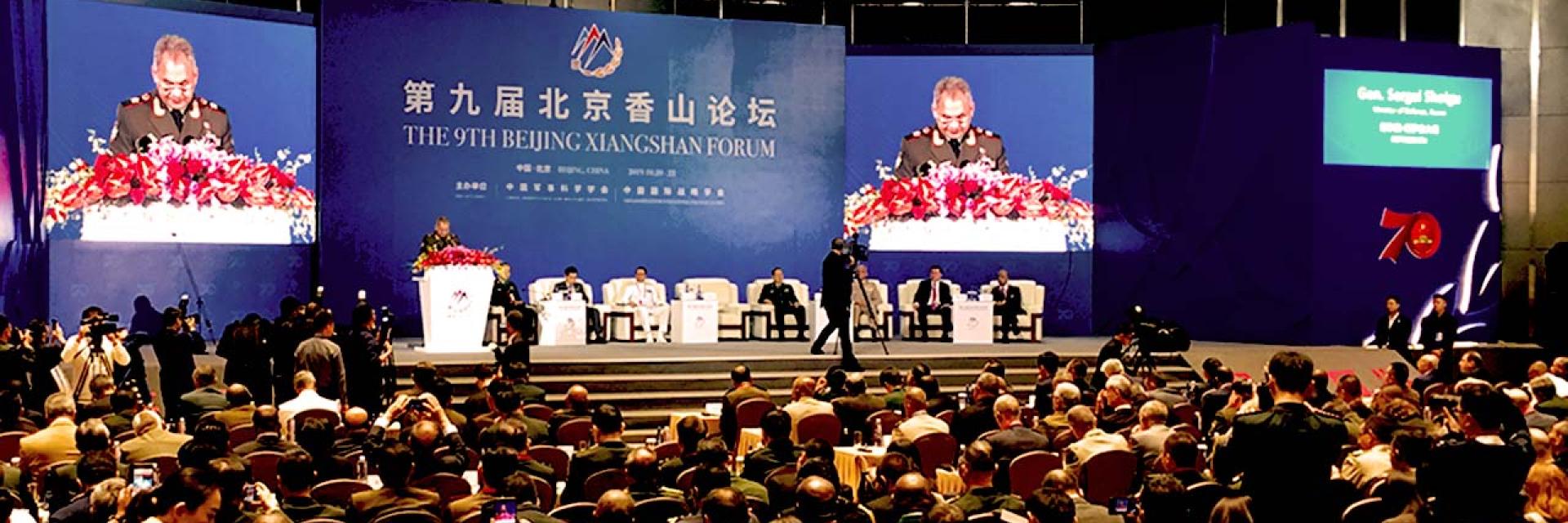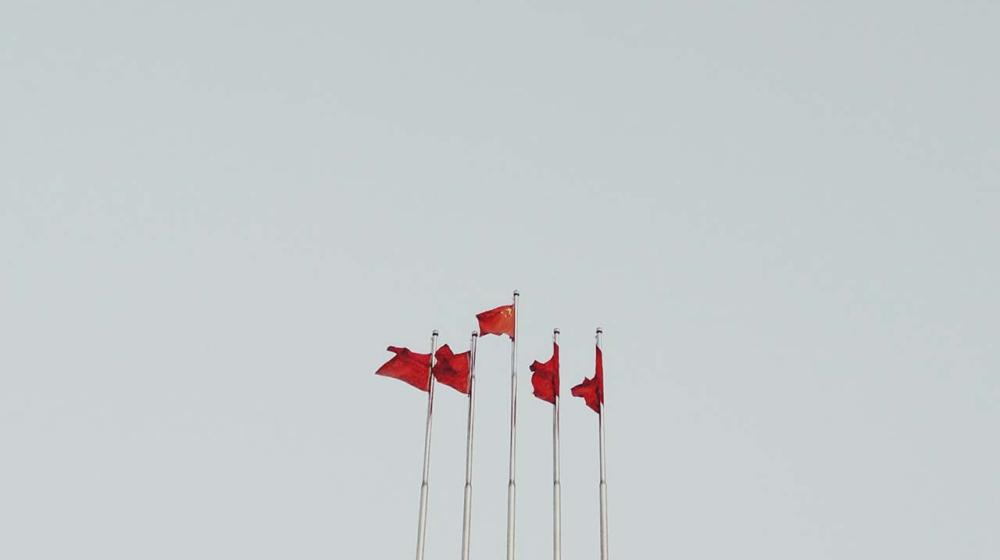On 21 February 2023, China issued a concept paper on its ‘Global Security Initiative’ (全球安全倡议 - GSI) (1). When the GSI was first mentioned by Xi Jinping in April 2022 during the Boao Forum, its meaning was unclear. Foreign diplomats and analysts tried to guess what it might entail without much help from their Chinese counterparts, who themselves only had a vague idea of its content. They were required to allude to it, just as they had to mention the Global Development Initiative (全球发展倡议 - GDI) launched six months before, in September 2021, and now will likely be required to also mention the newly released Global Civilisation Initiative (全球文明倡议 - GCI).
Like the Belt and Road Initiative (BRI) (2), the GSI was announced well before any flesh was put on the bones of the concept, and the concept paper that has just been issued remains vague in many respects and is likely to remain so in the coming years. This is because, more than the content, it is the process that matters for Beijing.
In the same vein as the BRI, the GDI and the GCI, the GSI is a label under which China will promote an array of diplomatic initiatives. Through them, China hopes to enlarge a coalition of friendly countries (‘circle of friends’ 朋友圈) and ultimately shape a post-Western security governance order, in which Russia could play a central role. For this reason, and because a significant number of countries have already endorsed the project, this Brief argues that it would be a mistake to underestimate the GSI, even though it may initially look like an empty shell.
The Brief first outlines the key initiatives presented under this label and goes on to consider how the GSI serves China’s broader strategic ambitions.
The GSI: A process
The 20 ‘priorities of cooperation’ listed in the concept paper cover such a wide spectrum of security challenges (terrorism, transnational organised crime, drug trafficking, nuclear proliferation, AI and data security, climate change) and in such broad terms that it is hard to consider this document a constructive step in addressing any of these threats. But the last and shortest part of the document, entitled ‘Platforms and mechanisms of cooperation’ (作平台和机制), is more interesting. It clearly indicates that the GSI is part of a larger diplomatic offensive that is just starting. Beijing will undertake at least 6 types of initiatives in the coming months:
Active promotion of the concept: Chinese diplomacy will launch a large-scale campaign to promote the concept, as it did with the BRI and other concepts that are presented as Xi’s own personal initiative. Beijing will try to incorporate the GSI label into as many bilateral and multilateral statements as possible, including in bilateral statements with the EU and several of its Member States on planned visits to China in the coming months.
Revival of China’s forum diplomacy: under the banner of the GSI, China will also try to revive multilateral forums it has created in the past, including the Xiangshan Forum – initially pushed as an alternative to the Shangri-La Dialogue – as well as the Global Public Security Cooperation Forum, among other forums mentioned in the concept paper. The document also indicates that new global security forums will be created by China, involving foreign governments, think tanks and international organisations. A large number of high-level security conferences under the GSI label will be organised in 2023-2024, and existing forums will be linked to this new initiative. For instance, as China is planning to host a third Belt and Road Forum this year, it will likely explicitly link the BRI with the GDI, GSI and GCI, by mentioning them all together in speeches, statements and memoranda of understanding (MoUs) that may be issued and signed on this occasion.
New GSI-labelled initiatives at the United Nations, specifically: the concept paper reaffirms China’s promotion of the UN’s central role in security governance, ad confirms China’s strategy of investment in the UN and its affiliated institutions. The underlying aim remains to reform the UN from within. In January 2022, China launched the ‘Group of Friends of Global Development Initiative’. As of September 2022, over 60 countries have joined the group according to official statements. It is likely that China will launch a similar ‘Group of Friends of Global Security Initiative’.
The GSI is part of a larger diplomatic offensive that is just starting.
Multilateral coordination: in addition to the UN, China is planning to further promote the GSI within the Shanghai Cooperation Organisation (SCO), BRICS cooperation framework, the Conference on Interaction and Confidence-Building Measures in Asia (CICA), the ‘China+Central Asia’ mechanisms and any other multilateral framework in which it has a say – in as coordinated a manner as possible. China is not only creating linkages between forums but also ‘rebranding’ its previous initiatives as part of the GSI (e.g. the China-LAS Cooperation Initiative on Data Security and the Data Security Cooperation Initiative of China+Central Asia).
Increased funding: at the UN but also in other multilateral frameworks, China is planning to offer new sources of funding and leverage existing funding to promote its interests. Among the funds to be further leveraged or created, according to the concept paper, are: the Lancang-Mekong Cooperation (LMC) Special Fund, and the Secretary-General’s Peace and Security Sub-Fund of the China-UN Peace and Development Trust Fund. China is also planning to provide more funds to Pacific Island countries.
Training more foreign military and police staff: the GSI concept paper explicitly calls for ‘more exchanges and cooperation among university-level military and police academies’ and announces the provision of ‘5 000 training opportunities in the next five years to train professionals [of developing countries] for addressing global security issues’.
Beyond communication
The GSI is not just a large-scale PR exercise. Beijing has two broader strategic aims.
Firstly, China is genuinely striving to build an alternative ‘security architecture’ that would set norms globally, beyond Asia. For the Communist Party of China, primarily concerned with political security, the most important of these norms should be ‘non-interference in internal affairs’. The Chinese authorities have the clear ambition to shape an alternative security agenda which will ultimately sweep aside any issues considered as sensitive (including Xinjiang and Taiwan). The concept paper explicitly advocates a ‘new vision of security’ that challenges the existing security order, considered by Beijing as illegitimately led by the West. This ambition is not new but has grown in recent years, as China perceives NATO more than ever as an enemy for both historic and new reasons (the 1999 bombing of the Chinese Embassy in Belgrade, the identification of China as a challenge in NATO’s new Strategic Concept). Beijing also sees the ‘US-led Indo-Pacific strategy’ as a way to establish ‘an Asia-Pacific version of NATO’ that is ‘bound to fail’ (3).
The end of China’s zero-Covid policy and partial reopening in January 2022 has not spelled the end of Beijing’s ‘wolf-warrior diplomacy’. Anti-US and anti-Western rhetoric has been particularly virulent in recent weeks, as exemplified in two documents recently released by the Chinese foreign ministry, ‘US Hegemony and Its Perils’ (4) and ‘The State of Democracy in the United States: 2022’ (5). In these documents, China accuses the United States of instigating conflicts across the globe. China is not only discrediting the US and its allies as a source of sustainable security, it is bluntly accusing them of being the main source of insecurity. This rhetoric applies to the war in Ukraine, for which Chinese officials are explicitly – in recent weeks more than ever – blaming the US, accusing Washington of ‘fanning the flames’ in Ukraine and of having a vested interest in the continuation of the war (6).
China’s diplomacy will likely try to use the GSI to argue that it is acting for peace, including in Ukraine (mentioned once in the concept paper), linking it to its recently published 12 points ‘Position on the Political Settlement of the Ukraine Crisis’ (7), also formulated in general terms. This argument is unlikely to be taken seriously by a majority of Western countries, including EU Member States, but it may carry more weight in large parts of the ‘developing world’. More convincingly, Chinese diplomacy refers to the resumption of the Iran-Saudi dialogue in Beijing in March as a ‘robust and successful effort to put the Global Security Initiative into practice’ (8).
China is striving to build an alternative ‘security architecture’ that would set norms globally.
Secondly, China is aiming at positioning itself as a ‘model’ to emulate (even though it prefers not to use this term for marketing purposes) to governments of the developing world in a diversity of sectors. It has already provided training programmes to foreign officials in economic, social or urban policy planning over the last 5 years, and will increasingly do so in the field of security. The bilateral security framework agreement China signed with the Solomon Islands in March 2022 is likely to be followed by others in various parts of the world, increasingly promoted under the GSI label. On the European continent, China already launched new forms of security cooperation in Serbia in 2019 (9) and is likely to develop and expand such initiatives further in Europe’s eastern neighbourhood in the coming years.
In parallel, China will continue to conduct joint military exercises with a range of countries, including with Russia – with whom it recently conducted a drill in the East China Sea (December 2022), in the Indian Ocean off the coast of South Africa (February 2023) and another in the Gulf of Oman, along with Iran (March 2023).
Hence, China’s promotion of an alternative security governance architecture is being conducted at both the operational and conceptual levels. At the conceptual level, it is noteworthy that the document mentions once the concept of ‘indivisible security’ (10), a principle that is currently used by Moscow to justify its military deployment in Ukraine, and that both countries incorporated twice in the joint statement of 4 February 2022 issued on the margins of the opening ceremony of the Beijing Winter Olympics. (11)
Conclusion: Will the GSI payoff?
China has already managed to persuade several countries to endorse the GSI concept. Despite the vagueness of the concept, when Xi Jinping promoted it at the SCO Council of Heads of State in Uzbekistan in October of last year, (12) the majority of SCO members promptly endorsed the initiative: six of them indicated their willingness to work with China on its implementation (Azerbaijan, Belarus, Iran (13), Kazakhstan, Kyrgyzstan and Uzbekistan) (14). Russia had already endorsed the initiative a month before (15), and confirmed this during Xi Jinping’s state visit to Moscow in March. Still, it is too early to say if the GSI diplomatic offensive will be successful, and to assess more broadly if China will manage to consolidate its coalition of friends under this banner.
What is certain is that China will first and foremost reach out to preferred partners, i.e. what it calls in the document ‘developing countries’ – in Africa (mentioned 14 times in the concept paper), Latin America, Central Asia, the Middle East, Pacific islands countries, among other regions and sub-regions referred to in the document. According to Chinese sources (16), more than 80 countries and international organisations have already expressed their support for the GSI. This figure is hard to corroborate, since no MoU or other documents have been signed. Nonetheless, several countries have recently demonstrated their support for the GSI during meetings with high-level Chinese officials, including Cambodia, (17) Mongolia, (18) Cuba, (19) Uruguay, Nicaragua (20) and Belarus (21).
Neither the US nor the EU are mentioned at any time in the concept paper. This is logical given that China does not perceive them as the main targets of its GSI diplomatic campaign – even though Beijing has launched a charm offensive towards Europe in recent months. This does not mean that China will not open some of the GSI initiatives to the EU and several of its Member States. The process will be similar to that observed during the initial years in which the BRI was promoted (2013-2015): ‘inclusiveness’ will be one of the keywords in the GSI promotion campaign, and a large number of invitations will be sent to EU Member State capitals in the coming months to participate in forums, high-level conferences and new cooperation mechanisms of all kinds, with the hope in Beijing that some positive responses may generate a new set of transatlantic tensions. In any case, Chinese diplomacy will continue to invest primarily in the consolidation of its ties with ‘developing countries’, positioning itself as a model to follow in terms of domestic security governance, and the architect of a new, alternative system of international security governance.
References
*The author would like to thank Hippolyte Cailleteau, trainee at the EUISS, for his research assistance.
1. Ministry of Foreign Affairs of the People’s Republic of China, ‘全球安全倡议概念文件’ (Global Security Initiative Concept Paper), 21 February 2023 (https://www.fmprc.gov.cn/web/wjbxw_new/202302/ t20230221_11028322.shtml). An English version is also available (https://www.fmprc.gov.cn/mfa_eng/wjbxw/202302/t20230221_11028348.html).
2. The first ‘Action Plan’ describing the overarching objectives of the BRI was published in March 2015, a full year and a half after the concept was launched by Xi Jinping during a visit to Kazakhstan.
3. Ministry of Foreign Affairs of the People’s Republic of China, ‘Foreign Minister Qin Gang Meets the Press’, 7 March 2023 (https://www.fmprc.gov.cn/mfa_eng/zxxx_662805/202303/t20230307_11037190.html).
4. Ministry of Foreign Affairs of the People’s Republic of China , ‘US Hegemony and its Perils’, 20 February 2023 (https://www.fmprc.gov.cn/mfa_eng/wjbxw/202302/t20230220_11027664.html).
5. Ministry of Foreign Affairs of the People’s Republic of China , ‘The State of Democracy in the United States: 2022’, 20 March 2023 (https://www. fmprc.gov.cn/mfa_eng/wjbxw/202303/t20230320_11044481.html).
6. Ministry of Foreign Affairs of the People’s Republic of China, ‘Foreign Ministry Spokesperson Mao Ning’s Regular Press Conference on February 27, 2023’, (https://www.fmprc.gov.cn/mfa_eng/xwfw_665399/ s2510_665401/202302/t20230227_11032204.html).
7. Ministry of Foreign Affairs of the People’s Republic of China, ‘China’s Position on the Political Settlement of the Ukraine Crisis’, 24 February 2023 (https://www.fmprc.gov.cn/mfa_eng/zxxx_662805/202302/ t20230224_11030713.html).
8. Ministry of Foreign Affairs of the People’s Republic of China, ‘Wang Yi: Saudi-Iranian Dialogue in Beijing is a Victory for Peace’, 10 March 2023 (http://ph.china-embassy.gov.cn/eng/chinew/202303/ t20230313_11039691.htm).
9. Reuters, ‘Chinese elite police join Serbian units in first European drills’, 28 November 2019 (https://www.reuters.com/article/us-serbia-china- police-idUSKBN1Y21PK).
10. See ‘Core concepts and principles’ in ‘全球安全倡议概念文件’ (Global Security Initiative Concept Paper), op. cit.
11. Office of the President of the Russian Federation, ‘Joint Statement of the Russian Federation and the People’s Republic of China on the International Relations Entering a New Era and the Global Sustainable Development’, 4 February 2022 (http://www.en.kremlin.ru/ supplement/5770).
12. Freeman, C. and Stephenson, A., ‘Xi kicks off campaign for a Chinese vision of global security’, United States Institute of Peace, 5 October 2022 (https://www.usip.org/publications/2022/10/xi-kicks-campaign- chinese-vision-global-security).
13. Iran’s support and participation in the GSI was reaffirmed during the visit of President Ebrahim Raissi last February. See Ministry of Foreign Affairs of the People’s Republic of China, ‘Xi Jinping holds talks with Iranian President Ebrahim Raisi’, 14 February 2023 (https://www.fmprc. gov.cn/eng/zxxx_662805/202302/t20230216_11025776.html).
14. ‘Xi kicks off campaign for a Chinese vision of global security’, op. cit.
15. ‘Russia highly appreciates and actively supports the two initiatives’ (the GSI and the GDI), according to a communiqué of the PRC Ministry of Foreign Affairs issued after a September meeting between Wang Yi and Sergey Lavrov. See Ministry of Foreign Affairs of the People’s Republic of China, ‘Wang Yi meets with Russian Foreign Minister Sergey Lavrov’ , 22 September 2022 (https://www.fmprc.gov.cn/mfa_eng/ zxxx_662805/202209/t20220922_10769825.html).
16. People’s Daily, ‘共同迈向持久和平、普遍安全的美好明天’ [Striding together towards lasting peace, universal security and a beautiful tomorrow], Qiushi, 22 February 2023 (http://www.qstheory.cn/qshyjx/2023-02/22/c_1129385969.html); Foreign Ministry of the People’s Republic of China, ‘2023年2月21日外交部发言人汪文斌主持例行记者会’ [On 21 February 2023, FMPRC Spokesperson Wang Wenbin chairs regular press conference], 21 February 2023 (https://www.fmprc.gov.cn/ fyrbt_673021/202302/t20230221_11028718.shtml).
17. Ministry of Foreign Affairs of the People’s Republic of China, ‘Xi Jinping meets with Cambodian Prime Minister Samdech Techo Hun Sen’, 10 February 2023 (https://www.fmprc.gov.cn/mfa_eng/wjdt_665385/ wshd_665389/202302/t20230211_11023982.html).
18. Ministry of Foreign Affairs of the People’s Republic of China, ‘President Xi Jinping holds talks with Mongolian President Ukhnaagiin Khurelsukh’, 28 November 2022 (https://www.fmprc.gov.cn/mfa_eng/wjdt_665385/ wshd_665389/202211/t20221128_10981916.html).
19. Ministerio de Relaciones Exteriores de la Republica de Cuba, ‘Declaración Conjunta entre la República Popular China y la República de Cuba sobre la Profundización de las Relaciones Binacionales en la Nueva Era’[Joint Declaration between the PRC and the Republic of Cuba about the deepening of the bilateral relationship in the new era], 30 November 2022 (https://cubaminrex.cu/es/declaracion-conjunta-entre-la- republica-popular-china-y-la-republica-de-cuba-sobre-la).
20. Lau, J., ‘China drums up support for global security push in Latin America as US looks to Asia’, South China Morning Post, 22 May 2022 (https://www.scmp.com/news/china/diplomacy/article/3178717/china- drums-support-global-security-push-latin-america-us).
21. Belarusian Telegraph Agency, ‘Lukashenko reaffirms support for China’s international security, development initiatives’, 1 March 2023 (https://eng.belta.by/president/view/lukashenko-reaffirms-support-for-chinas- initiatives-in-international-security-development-157007-2023/).


